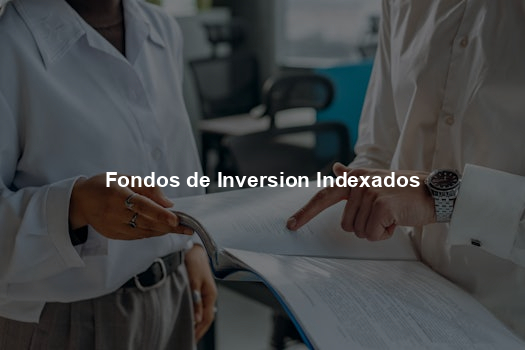Index-tracking funds provide excellent diversification while tending to have lower fees compared to actively managed funds – this may lead to financial savings.
Indexed investment funds replicate a stock exchange and do not require long-term management work from any team of advisors.
Benefits
Funds of investment indexados, also known as ETFs, are financial instruments which imitate reference indices to diversify portfolios. Operating these ETFs does not require professional expertise and anyone can subscribe; their billing process is more straightforward than that for traditional funds with one management firm handling both purchases and sales of shares.
Index-tracking funds also tend to be more profitable over the long term, making them an effective and secure method of investing long-term savings in retirement accounts such as 401(k) or IRA accounts. Legendary investor Warren Buffett advises using index funds as part of your retirement investment portfolio and withdrawing your money at retirement time.
Indexed investment funds (FIIs) are financial products which, due to the market’s history and theory, have had a consistent and reliable return over time. It is an easy and accessible way of investing, thus becoming popular with investors.
Risks
Index-linked investment funds offer investors a safe and suitable means of investing in companies composing an economy’s market, similar to active inversion funds; both include values from economic activities. Furthermore, index funds carry significant risks.
Indexes have an important place in the market, which explains why index-backed funds’ values tend to differ from one another in their portfolios. Asset managers find ways to address this disparity through proper weighting among various values.
Adjusted Ponderacion (AP) is a technique designed to balance out the influence of each value on a market, so those having more influence have lower weighted APs while vice versa.
There are various robot platforms that enable investors to invest in index funds in an automated and convenient manner, using user-friendly interfaces. Also, large financial entities such as Vanguard, Amundi, and iShares provide opportunities for investing index funds directly.
Fees
Indexed investment funds are an efficient and cost-effective way to invest in the market, usually outperforming ETFs in terms of tax efficiency. While you could make small monthly contributions (say 300EUR), sometimes it may be better to save up for one large subscription ( say 3000EUR ).
Index-tracking mutual funds aim to reproduce or mimic the returns from one market, such as Standard & Poor’s 500 Index. This requires that their administrator is attentive in selecting and purchasing securities both from your portfolio as well as those listed in an index index.
These funds typically offer lower commissions than traditional investment funds due to their passive management style and reduced requirements for investments from your account. Furthermore, they tend to be much more transparent and user-friendly for employees working in investments.
These are the main characteristics that distinguish index-linked investment funds from ETFs or stocks; both feature tax differentials which make switching funds easy without incurring tax payments, something neither options nor ETFs allow. Therefore, it’s vitally important that this aspect be kept in mind.
Time horizon
Indexated funds’ aim is to maximize long-term returns and reach their targets of performance. Therefore, generally they take a passive investing approach more often than active one and tend to acquire and dispose of various titles of different values in a systematic fashion. BlackRock’s index-linked fund, iShares, provides an investment product which takes as a reference point the Bloomberg Barclays Global Aggregate 1-5 Year; this variable income global fund invests in various developed market stocks with high and mid capitalization as well as stocks with negative environmental or social impacts.
John Clifton Bogle was an early investor and creator of index funds. His landmark 1999 publication Common Sense on Mutual Funds: New Imperatives for the Intelligent Investor is considered a classic due to its straightforward advice.
Investment funds that replicate large and varied indexes can help mitigate market or sector risk. Diversified portfolios with specific investment funds should also help ensure your money doesn’t concentrate in one part of the market; long-term investing through different sectors and titles is also recommended.
